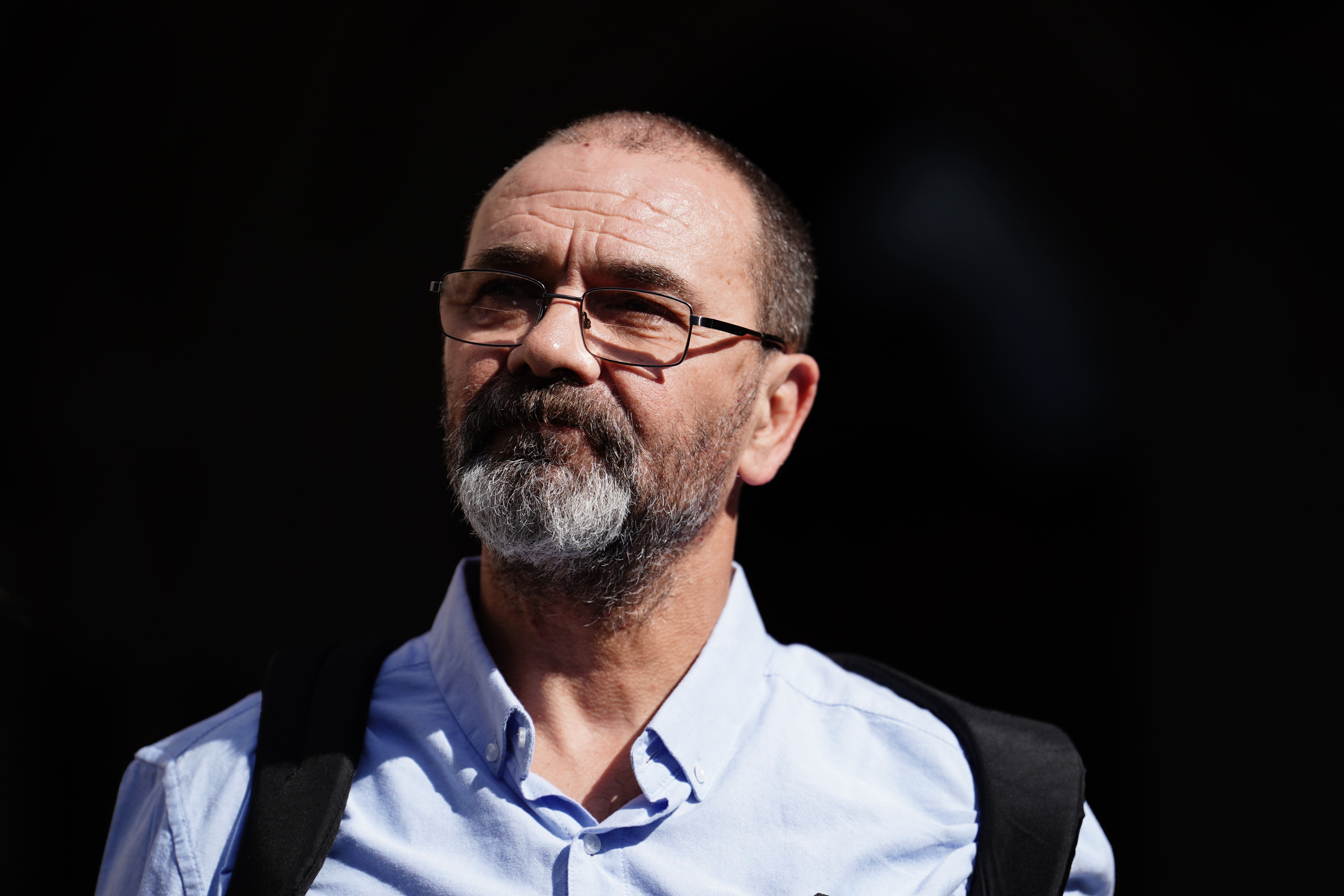Man who spent 17 years in prison for rape he did not commit has conviction overturned
Andrew Malkinson tells victim: ‘I am so sorry the system let you down. It let us both down’
A man who served 17 years behind bars for a rape he did not commit angrily described being “kidnapped by the state” yesterday after he was cleared by the Court of Appeal.
Andrew Malkinson, 57, was found guilty of raping a woman in Greater Manchester in 2003 and the following year he was jailed for life with a minimum term of seven years. He served 10 more because he maintained his innocence.
His conviction was quashed after DNA evidence linking another man to the crime came to light.
Outside court, he said he was “finally exonerated” but had been left “without an apology” and accused police of “scrambling to cover up” how he was wrongly convicted.
He said: “Since I was arrested in 2003, the police, the prison system and probation service have been calling me a liar because I denied that I committed the crime.
“They claimed I was ‘in denial’ and made me serve an extra 10 more years in prison because I would not make a false confession.
“I am not a liar. I am not in denial but I will tell you who is – Greater Manchester Police are liars, and they are in denial.”
Addressing the victim of the crime he did not commit, he said: “I am so sorry that you were attacked and brutalised that night by that man. I am not the person who attacked you but what happened to me is not your fault.
“I am so sorry if my fight for the truth, as I knew it to be, has caused you extra trauma. I am so sorry that the system let you down. It let us both down.”
At the time of Mr Malkinson’s trial, there was no DNA evidence connecting him to the rape and the prosecution case against him was based solely on identification evidence.
His case was referred to the court in January by the Criminal Cases Review Commission (CCRC) after the Crown Prosecution Service (CPS) conceded his conviction was unsafe because new DNA evidence points to another man, who the court ordered can only be identified as Mr B.

Lord Justice Holroyde said other points argued by Mr Malkinson’s legal team, about “crucial” material not disclosed at the time of his trial, “raised a number of substantial and important points” and the court would take time to consider them and give a decision on them later in writing. He added: “However, we must keep Mr Malkinson waiting no longer to know the outcome of his appeal.”
Mr Malkinson previously applied twice for his case to be reviewed by the CCRC but was turned down and he was eventually released from prison in December 2020.
After his release, advancements in scientific techniques allowed his legal team, supported by legal charity Appeal, to provide new DNA analysis that cast doubt on his conviction.
The CCRC then commissioned its own testing which found that DNA from the victim’s clothing matched another man on the national police database.
GMP confirmed in January that a man had been arrested and released under investigation in light of the new information, but no decision has been made as to whether he will be charged. Edward Henry KC, representing Mr Malkinson, told the court that police had destroyed the victim’s clothing after the original trial and that, without a sample held by the Appeal archive, Mr Malkinson would have been denied the chance to prove his innocence.
He described “deplorable disclosure failures, which mostly lay at the door of the Greater Manchester Police”.
They include police photographs of the victim’s left hand, which supported her evidence that she broke a nail scratching the face of her attacker, and the fact the two eyewitnesses who identified Mr Malkinson had convictions for dishonesty offences and one was a heroin addict.
None of this was available to Mr Malkinson’s defence team at his trial and Mr Henry said the failure to disclose the photographs “deprived” Mr Malkinson of his “strongest defence point – his lack of any facial injury”.
The barrister also said jurors were “misled” about the eyewitnesses due to the lack of information about their history.
GMP issued an apology to Mr Malkinson after the court’s announcement.
Assistant Chief Constable Sarah Jackson said: “We are truly sorry to Mr Malkinson that he is the victim of such a grave miscarriage of justice in being convicted of a crime he did not commit and serving a 17-year custodial sentence.
“Whilst we hope this outcome gives him a long overdue sense of justice, we acknowledge that it does not return the years he has lost. I have offered to meet with him to personally deliver this apology.
“We are also profoundly sorry to the victim of this crime, who not only suffered a horrific trauma 20 years ago but also relived the experience during a criminal trial and now may endure additional harm caused by learning that the true offender has not yet been brought to justice.”
Emily Bolton, director of Appeal, said outside court: “The truth is this case is an indictment of both the Court of Appeal and the CCRC. These so-called ‘safety nets’ in our justice system missed three earlier opportunities to put this obvious miscarriage of justice right.”

